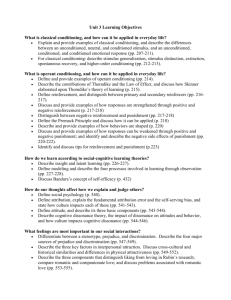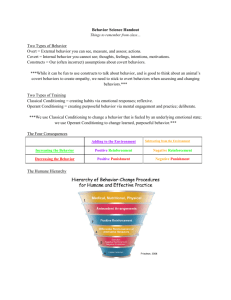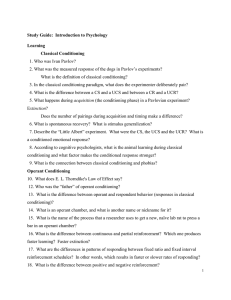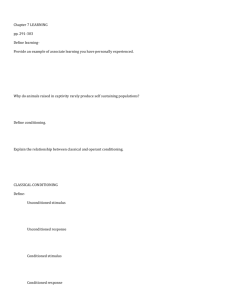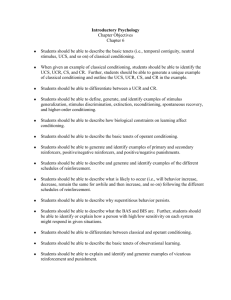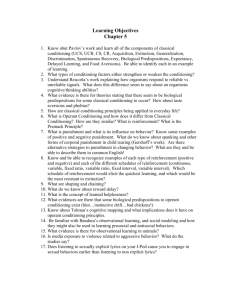Chapter 5 Quiz and Exam Review This review is in not
advertisement
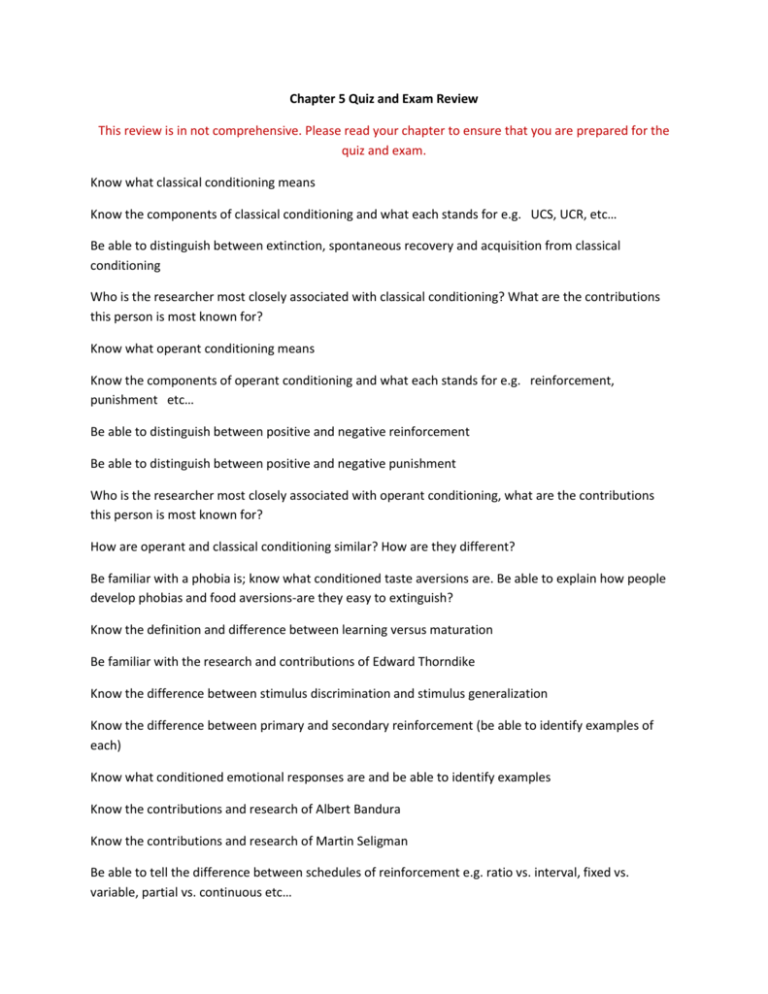
Chapter 5 Quiz and Exam Review This review is in not comprehensive. Please read your chapter to ensure that you are prepared for the quiz and exam. Know what classical conditioning means Know the components of classical conditioning and what each stands for e.g. UCS, UCR, etc… Be able to distinguish between extinction, spontaneous recovery and acquisition from classical conditioning Who is the researcher most closely associated with classical conditioning? What are the contributions this person is most known for? Know what operant conditioning means Know the components of operant conditioning and what each stands for e.g. reinforcement, punishment etc… Be able to distinguish between positive and negative reinforcement Be able to distinguish between positive and negative punishment Who is the researcher most closely associated with operant conditioning, what are the contributions this person is most known for? How are operant and classical conditioning similar? How are they different? Be familiar with a phobia is; know what conditioned taste aversions are. Be able to explain how people develop phobias and food aversions-are they easy to extinguish? Know the definition and difference between learning versus maturation Be familiar with the research and contributions of Edward Thorndike Know the difference between stimulus discrimination and stimulus generalization Know the difference between primary and secondary reinforcement (be able to identify examples of each) Know what conditioned emotional responses are and be able to identify examples Know the contributions and research of Albert Bandura Know the contributions and research of Martin Seligman Be able to tell the difference between schedules of reinforcement e.g. ratio vs. interval, fixed vs. variable, partial vs. continuous etc…



